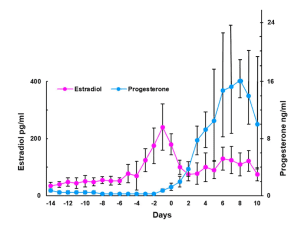Dr. Jamille Nagtalon-Ramos, EdD, WHNP-BC, IBCLC, FAANP, is an assistant professor of nursing at Rutgers University in New Jersey. She discusses where women’s health nurse practitioners can find the latest information on providing prenatal and postpartum care.
Pregnancy and Postpartum
From the Journal
Promoting mental health self-care strategies during pregnancy and postpartum with motivational interviewing
Management of headache in pregnancy and during lactation
Improving perinatal sexual health assessment: PLISSIT model implementation
Development of cardiovascular disease after adverse pregnancy outcome
Improving depression and anxiety screening in an infertility practice through implementation of an evidence-based screening tool and process
Clostridioides difficile in pregnancy
Destigmatizing abortion in primary care settings
Position Statement: Access to Safe Abortion Care
Perinatal care considerations for women who have experienced type 3 female genital cutting/infibulation
Clinical Topics: Prenatal and Postpartum
WHNPs as Partners in Addressing the Maternal Health Crisis
Assessment and management of vaginal bleeding in early pregnancy
Thyroid autoantibodies and adverse pregnancy outcomes
Ketogenic nutrition therapy: Considerations for the women’s health clinician
Current data are limited on ketogenic nutrition in pregnancy, and it is therefore not recommended.
Providing Bias-informed and Evidence-based Care for Pregnant Persons with Obesity
Breastfeeding complications in a Filipino American patient
Pregnancy During the Pandemic: Evolving Covid-19 and Adaptations to Obstetric Care
Pregnant people and those contemplating pregnancy have endured uncertainty and numerous modifications in how care is provided during the pandemic.
Development of the WHNP Postpartum Hospitalist Role: Perspectives From Philadelphia
Beyond benefits to the patient, there are also professional benefits that may attract the WHNP to a hospitalist role.
Peripartum Cardiomyopathy: Implications for WHNPs and Midwives
In the US, the incidence of PPCM is rising, possibly due to advanced maternal age, an increased rate of multifetal pregnancies secondary to modern fertility techniques, and increased recognition and awareness of the disease.
Intrahepatic Cholestasis of Pregnancy: New Insights on an Old Issue
Although ICP poses minimal health risks for the pregnant person, it carries significant risk to the fetus.
Case Study: Acute Abdominal Pain at 31 Weeks’ Gestation
Conservative measures to manage acute appendicitis without surgery can be an acceptable choice for pregnant women meeting appropriate criteria.
Streamlining a Carrier Screening Routine Into Practice: Proactive Prepregnancy Planning
Prepregnancy carrier screening enables individuals and couples to learn about their reproductive risk and consider the most complete range of reproductive options versus waiting until pregnancy when choices become more limited.
Position Statement: Climate Change, Women’s Health, and Environmental Justice
Climate change represents an urgent health challenge that requires engagement, advocacy, and leadership from the nursing profession.
Role of the WHNP in providing care for the patient with recurrent pregnancy loss
RPL can be an intimidating entity for healthcare providers to evaluate and treat due to varying guidelines and pressure from patients to prevent future losses.
Diabetic gastroparesis in pregnancy
WHNP may participate in the management of high-risk pregnancies when collaborating with other multidisciplinary providers.
Implementation of the Maternal Mental Health Safety Bundle: Standardizing perinatal depression screening and response in a federally qualified health center
A national survey of obstetricians and gynecologists reported that 53% universally screened pregnant patients for depression, but only 33.67% implemented guideline-congruent care.
Placing the spotlight on maternal morbidity and mortality among Black women in New York
The prevalence of maternal morbidity and mortality affects Black women disproportionately in the United States. Reducing racial and ethnic disparities in maternal mortality must be a priority.





























































































